- Nigerian power grid collapsed for the twelfth on December 11, 2024
- Experts blame aging infrastructure, insufficient funding to the incessant collapse
- Obi, others say it is a national embarrassment, call for long term solution
On December 11, 2024, the national electricity once again collapsed, throwing over 200 million Nigerians stark darkness.
Many parts of Nigeria have been plunged into darkness again as the country’s national grid collapsed for the 11th time this year.
A message from Jos Disco to its customers confirmed that the grid collapsed on Wednesday afternoon.
The message which was signed by the company’s Head of Corporate Communication, Friday Elijah, reads:
“Dear esteemed Customer(s),
The current outage being experienced within our franchise States is a result of loss of power supply from the national grid. The loss of power supply from the national grid occurred this afternoon at about 1333 hours of today, Wednesday, 11th December 2024, hence the loss of power supply on all our feeders.
“We hope to restore normal power supply to our esteemed customers as soon as the grid supply is restored back to normalcy.
“Thank you for your patience and understanding as we strive to serve you better.”
The Transmission Company of Nigeria (TCN) is yet to confirm the reported collapse of the national, while Ikeja Electricity Distribution Company only reported a power outage. Eko Electricity Distribution Company reported “a loss of power supply in our network”.
Statement from EKEDC:
“Dear Valued Customer,
Kindly be informed there was a reported case of system disturbance on 11th December, 2024 at 13:32hrs which has resulted to a loss of power supply across our network.
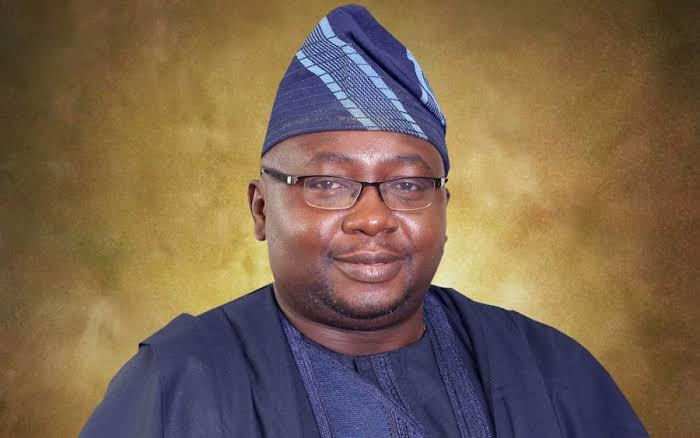
“We are currently working with our partners as we hope for speedy restoration of the grid. We will keep you updated as soon as power supply is restored.
Kindly bear with us.”
According to @NationalGridNg, a reliable source on power issues, restoration efforts have commenced.
It should be noted that earlier this week, the Nigerian Midstream and Downstream Petroleum Regulatory Authority (NMDPRA) reportedly directed gas producers to stop supplying gas to indebted generation companies (GenCos).
WITHIN NIGERIA gathered that the latest occurrence was the twelfth time such incident was happening in the country’s power sector, and fourth time within one month.
According to our findings, within 2024, the national grid has collapsed on Sunday, February 4, Thursday, March 28, Monday April 15, Saturday, July 16, Monday, August 5, Monday, October 14, Tuesday, October 15, Saturday, October 19, Tuesday, November 5 , Thursday, November 7, Monday, November 11 and Wednesday, December 1, 2024.
Latest grid collapse
According to data from the National System Operator showed that the grid, which had been recovering from the collapse that occurred in November 7, had peaked at 4,360.8MW on Wednesday with lowest generation at 1,454.64MW. The NSO data indicated that the grid supplied 2,709.45MW as of 11am wednesday but dropped dramatically to 4.5MW at 12pm with only Afam VI (3.7MW) and Omoku (0.8MW) power plants on the grid.
It, however, began a gradual recovery at 1pm reaching 104.8MW with Azura IPP (91MW) back on the grid.
In an update on the latest power supply setback, the Transmission Company of Nigeria, TCN, attributed it to “a sudden rise in frequency from 50.33Hz to 51.44Hz”.
TCN General Manager, Public Affairs, Ndidi Mbah said efforts were on top gear for the recovery of the grid.
In his words, “TCN wishes to inform the public that the national grid experienced a disturbance at approximately 11:29 AM this morning, caused by a sudden rise in frequency from 50.33Hz to 51.44Hz. Recovery efforts began immediately, and the Abuja Axis was restored within 28 minutes. Recovery is still ongoing.
“The frequency spike was caused by issues encountered at one of TCN’s substations, which had to be shut down to prevent further complications. In addition to this, we are actively engaged in significant repair work on several critical transmission lines and substations. This includes the 330kV transmission lines along the Shiroro–Mando axis, major upgrades at the Jebba Transmission Substation, and the restoration of the second Ugwuaji–Apir 330kV transmission line.
“Furthermore, following the submission of the investigative report on the causes of previous grid collapses, we have begun addressing the identified weaknesses in the transmission system. Efforts are being made to close the gaps highlighted in the report, and to enhance the overall stability and resilience of the grid. These efforts include both technical upgrades and strategic interventions based on the committee’s recommendations.
“However, it is important to note that while these repairs and improvements are underway, some degree of instability in the system is likely to persist until all major works are completed. We acknowledge the impact of these disruptions and ask for the understanding and patience of the public during this challenging period.
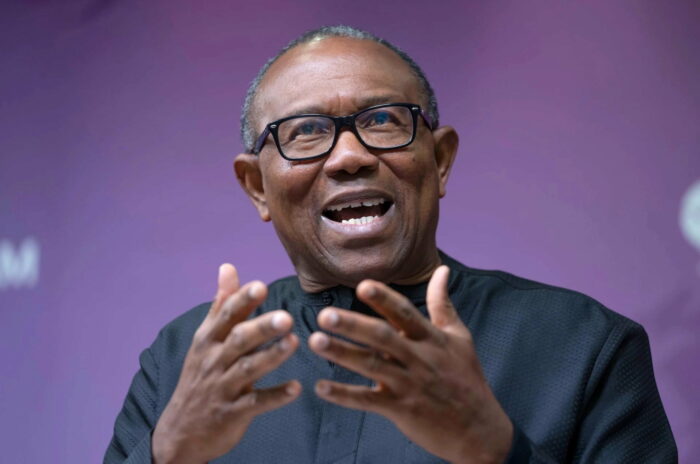
“TCN remains committed to improving the reliability of electricity supply, recognizing the vital role that stable power plays in Nigeria’s socio-economic development. We assure the public that all necessary measures are being taken to ensure the grid’s long-term stability, in line with the recommendations of the investigative committee, while also addressing infrastructure damage such as vandalized transmission lines”, she stated.
Reasons for the frequent collapse
There is no gainsaying the fact that with the recent epileptic power in the country, Nigeria’s national power grid is prone to frequent collapses, with the resulting power shortages proving an obstacle to economic growth and investment in Africa’s most populous nation.
The World Bank estimates that the Nigerian economy loses $29 billion a year due to its unstable power supply, which causes electricity blackouts across the country.
Nigeria’s aging power infrastructure is at the heart of the crisis. Transmission lines and substations, some of which are more than 40 years old, are prone to frequent failures.
The government-owned Transmission Company of Nigeria (TCN) reports average transmission losses of 7.79 megawatts for every 100 megawatts injected into the grid.
Years of under-investment have left the grid susceptible to tripping when demand fluctuates unexpectedly, said Lagos-based energy lawyer Ayodele Oni.
Compounding this is vandalism and attacks on transmission infrastructure, especially in Nigeria’s north. In the last two years, TCN recorded 108 attacks on its towers and lines.
Another major factor is that Nigeria, with a population of more than 200 million people, only generates and distributes a third of its installed generation capacity of 13,500 megawatts.
And despite having the world’s seventh-largest gas reserves, Nigeria produces less than 10% of the electricity generated by South Africa, a country with a population a third the size.
More than 75% of Nigeria’s electricity comes from gas-fired power plants, primarily located in its southern region. The remainder is generated by hydroelectric stations in the north.
Power generation firms feed electricity into the national grid, controlled by the federal government, which distributes it through 11 regional distribution companies to consumers.
Added to the above reasons, Nigeria’s aging infrastructure is a primary contributor to grid failures. Decades-old transmission lines and substations require urgent upgrade or replacement. Outdated equipment struggles to meet growing demand, leading to system overload and collapse.
Poor maintenance exacerbates the grid’s vulnerability. Regular checks and repairs are often neglected, allowing minor issues to escalate into major problems. Inadequate funding, lack of expertise, and bureaucratic inefficiencies hinder maintenance efforts.
Insufficient power generation and vandalism also plague Nigeria’s grid. Generation capacity falls short of demand, causing strain on existing infrastructure. Vandalism and theft of transmission equipment further compromise grid integrity.
Economic consequences of perennial grid collapse
It is now very obvious that the repercussions of these grid failures are severe and multifaceted. For the average Nigerian, prolonged power outages translate into a grim dependence on generators, which come with their own set of hazards.
It goes without saying that the pervasive use of generators results in chronic noise pollution, increasing the risk of respiratory diseases due to toxic fumes, and amplifies the potential for deadly fire hazards.
However, beyond the personal toll, businesses suffer immense financial losses due to interrupted operations, particularly in industries where continuous power is essential. Manufacturing plants, tech companies, and small businesses alike are forced to either scale back production or shut down entirely, exacerbating Nigeria’s unemployment crisis and stunting economic growth.
By and large, households, on the other hand, face a different set of challenges. In homes across the country, refrigerators and freezers stand idle during extended blackouts, leading to food spoilage, while families struggle with the inconvenience of living in darkness, deprived of basic comforts. Over time, these chronic outages contribute to elevated levels of stress, frustration, and a reduced quality of life for millions of citizens.
The economic consequences of Nigeria’s failing grid are profound. It is a known fact that stable electricity supply is a fundamental requirement for industrial development, yet the frequent grid collapses serve as a major deterrent to foreign investment.
Prospective investors, wary of unreliable energy infrastructure, are more likely to bypass Nigeria for other countries with more dependable power systems. The resulting stagnation in industrial growth further hinders the country’s ability to diversify its economy, perpetuating its over-reliance on oil and limiting the potential for sustainable development.
Nevertheless, many a time, industries that had to run on diesel-powered generators as a result of frequent outage hike their products which translate high cost of living foe Nigerians.
Reactions on the collapse
Speaking on the issue of incessant grid collapses, the President, Chartered Institute of Power Engineers of Nigeria, CIPEN, Engr. Israel Abraham, blamed politics involved in taking decisions on where to site grid infrastructure as well as poor maintenance culture for the current grid challenges.
Engr. Abraham noted that significant investment was needed to replace the old lines and networks before the grid would stabilize.
“The grid is a connection from generation to transmission to distribution and up to the consumer where you are. It involves all the wires and networks. It is the connection of interconnections of all these equipment and accessories. Most of these equipment are aged and they need to be replaced. You need to reconduct the lines because they have been there for decades.
“To reconduct the lines means you have to remove the old ones and put in new ones or you upgrade it from maybe a lower capacity to a higher one. These things are necessary because as the population grows, you have more people taking power in certain areas and you need to reconduct or you need to upgrade such facilities”.
He pointed out that the location of most substations across the country were not driven by expert decisions but politically made with equipment sited at locations where they are not needed causing imbalance in the system
“If you now have a situation whereby you are not in control to do what you need to do, I go back to that same word again of patronage, you find that you just do what you are asked to do. And if you do what you are asked to do, then you will have what you should have.
“But if we can actually take charge completely and you have professionals deciding what to do, then some of these things will gradually fade out because we will be able to make professional decisions. For instance, in this very environment where we are right now, maybe they need a transformer that is just maybe 500 kVA.
“But if the owner of this place is politically savvy, he can force the government or pass through some politicians and they will bring it in as a constituency project and put maybe a one-megawatt transformer. Now, what happens is the rest is wasted and it also hurts the grid system”.
He urged the Federal Government to summon the political will and ensure that the right things are done in the sector, and also permanently end the culture of political patronage in the execution of projects in the power sector.
However, reacting to the frequent collapse of the grid, Peter Obi, former governor of Anambra State and presidential candidate of the Labour Party in the 2023 elections, voiced sharp criticism of the government’s failure to address the country’s persistent power crisis.
According to a statement revealed on his official X page, Obi described the grid collapse as a “national shame,” condemning the repeated disruption of electricity supply and the failure of leadership to provide sustainable solutions.
“This recurring disaster is a glaring testament to the failure of leadership and policy implementation at the highest levels,” Obi said, reflecting the frustrations of millions of Nigerians who are accustomed to living without reliable electricity.
He highlighted Nigeria’s struggle to maintain a steady power supply, contrasting it with the successes of other African nations. “South Africa, with just 30% of our population, generates over 40,000 megawatts of electricity, while Egypt with half our population generates the same amount,” Obi noted. “In stark contrast, Nigeria, with a much larger population, generates less than 10,000 megawatts—often disrupted by grid failures.”
Obi attributed Nigeria’s diminished economic position in Africa to such infrastructure setbacks. Once the continent’s largest economy, Nigeria now ranks fourth, trailing behind South Africa, Egypt, and Algeria.
“Our fall from the number one spot is a consequence of years of leadership failure, particularly in critical sectors like power,” Obi lamented. “How long must Nigerians endure a system that fails to provide one of the most critical necessities for a productive society?”
Drawing attention to governance challenges, Obi urged leaders to enact “urgent, comprehensive reforms” in the power sector, emphasizing that a reliable power supply is essential for the country’s development and economic growth.
“Nigerians deserve a government that prioritizes measurable indices of development,” he added, calling for a shift in leadership focus towards policies that enhance the welfare and economic well-being of the people.
How it can be fixed
More than a decade after Nigeria privatised its electricity sector, Nigeria’s grid has barely improved.
But last year the government allowed its 36 states to generate and transmit their own power. States like Lagos, the nation’s commercial hub, and five others have already begun developing independent power markets.
The government is also working with the World Bank to build 1,000 mini solar grids to expand power access in rural areas
“A more resilient approach is needed in Nigeria to incorporate decentralised energy sources, such as solar power paired with storage, to complement the national grid,” said Sherisse Alexander, chief business officer at independent power producer WATT Renewable Corporation.
Investment in modernising the grid is crucial to prevent failures. A well-funded and efficient maintenance regime is essential to ensure grid stability. Addressing these issues requires a multi-faceted approach, including increased generation capacity, community engagement, and robust security measures.
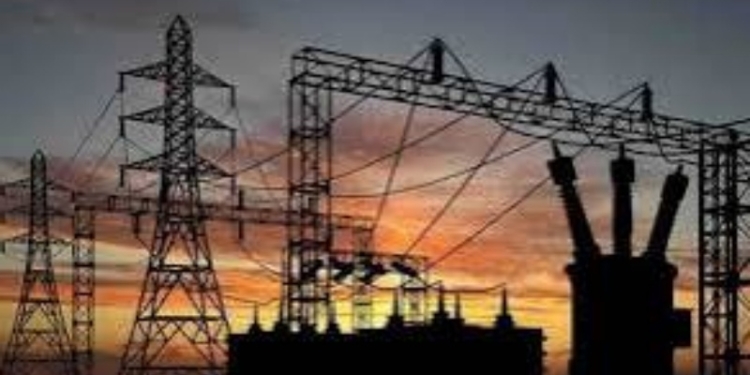
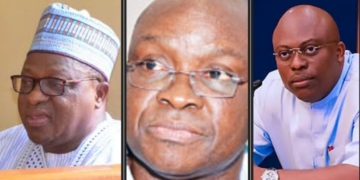
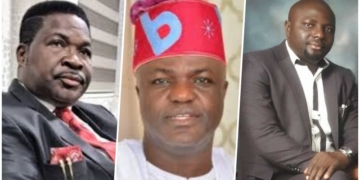

Discussion about this post